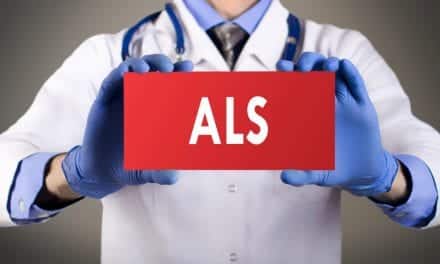About 10% of ALS cases are inherited or familial, often caused by an error in the C9orf72 gene. Compared to sporadic or non-familial ALS, C90rf72 patients are considered to have a more aggressive disease course. Evidence points to the immune system in disease progression in C90rf72 patients, but little is known regarding what players are involved.
New research from the Jefferson Weinberg ALS Center identified an increased inflammatory signal in C90rf72 patients compared to other ALS patients, pointing to immune characteristics that distinguish this subgroup of ALS patients and informing potential anti-inflammatory therapies, a media release from Thomas Jefferson University explains.
The study was published recently in Amyotrophic Lateral Sclerosis and Frontotemporal Degeneration.
A Pronounced Increase
In comprehensive analyses, the researchers collected cerebrospinal fluid (CSF), via a small puncture in the spine, as well as serum from 15 C9orf72 patients, nine sporadic ALS patients and 14 control patients, and conducted a test to measure the levels of around 40 different immune molecules and chemicals. They found an increase in pro-inflammatory molecules in the serum and CSF of both sporadic and C9orf72 ALS patients compared to controls, but the increase was more pronounced in C9orf72 patients.
These findings point to important distinguishing characteristics of this subgroup of ALS patients, which could be detectable in a peripheral test of serum. Serum tests would be less invasive than testing CSF. The results also indicate that any future strategies for developing anti-inflammatory treatments would benefit from distinguishing the C9orf72 subtype from other types of ALS. The researchers are looking to build a bank of patient samples to continue studying key differences between patient subtypes, the release continues.
“This is a step in better characterizing this sub-population of ALS patients, and an impetus to continue the search for biomarkers for this disease.”
— senior author Hristelina Ilieva, MD, PhD, assistant professor and medical director of the Weinberg ALS Center
[Source(s): Thomas Jefferson University, Science Daily]
Related Content:
Does This Cause Neurons to Die in Familial ALS?
This New Gene May Increase ALS Risk
ALS That Affects Children





